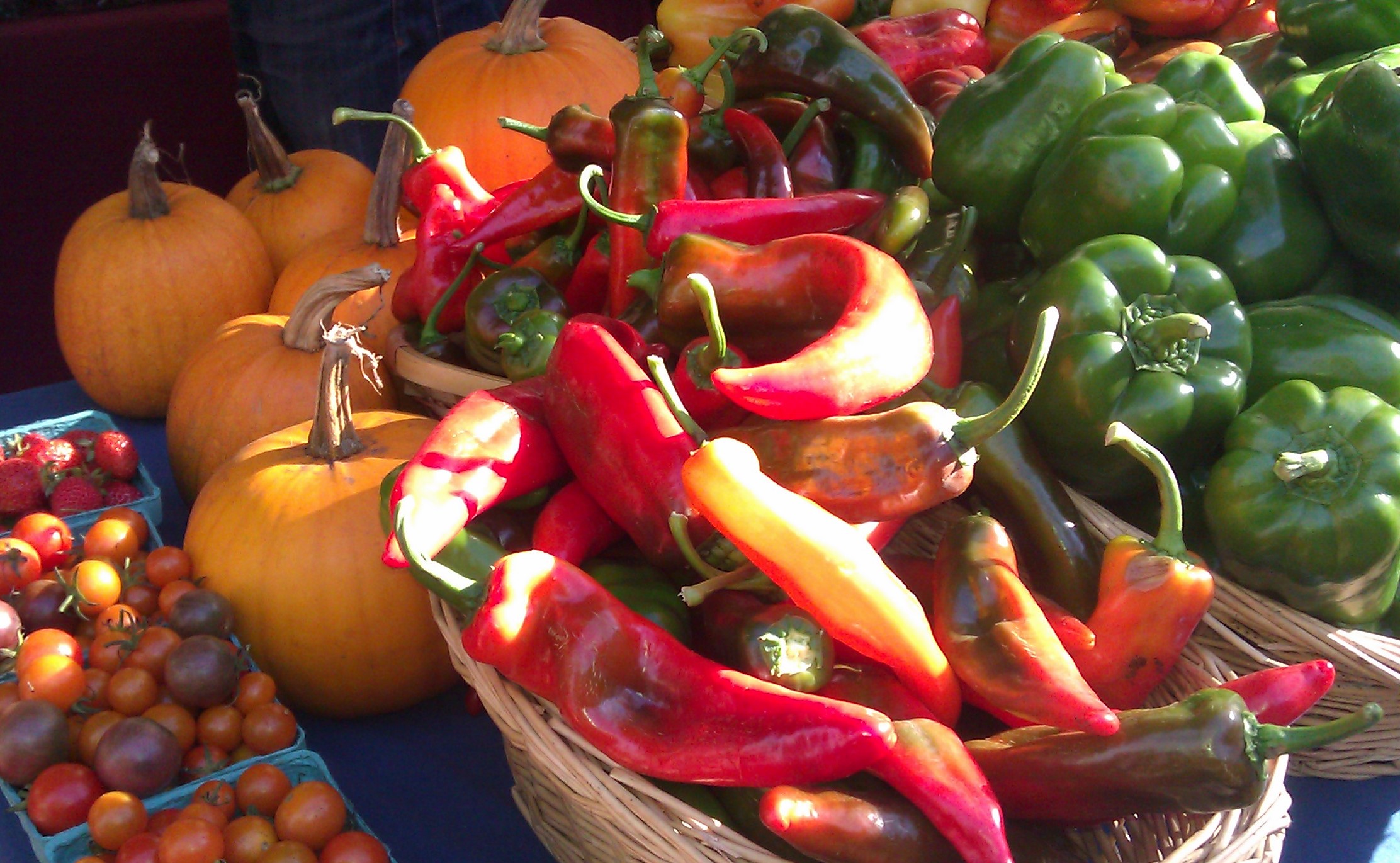Superfoods at the Market

There's so much talk of "superfoods" and their special healing powers. Acai for constipation, gogi berries for brain health and so on... As if we need to find foods from distant places to enhance our health or fix all our health problems. These exotic foods can be expensive and difficult to find. What if we could get the same health benefits from foods that's grown locally, found in the Farmer's market or at your local grocery store, and save money! These local foods are just as good, even though they may not have exotic names and come from far away places. You may already have some these super stars in your home or growing in your garden now. Additionally, they don't even have to be in-season, some can even be frozen and be just as nutritious.
Here are a few of those foods and their amazing super powers:
- Berries - The partial list is - strawberries, blueberries, raspberries and blackberries. Berries are definitely high on the list for their powerful cancer fighting antioxidants such as anthocyanins and resveratrol (also known for anti-aging properties). It's all in the colors, berries in some cases have 10 times the antioxidants of other fruits and vegetables. Besides, their antioxidative qualities, berry may protect against high blood sugar levels and reduce inflammation. Additionally, berries are low calorie, high in fiber and naturally sweet. Most berries freeze well, so get them fresh and in-season then freeze your own or pick-up from the freezer section in your grocery store.
- Cruciferous Vegetables - These are in the vegetable family of kale, cabbage, broccoli, cauliflower and collard greens. Various components in cruciferous vegetables have been linked to lower cancer risks. Some have shown the ability to stop the growth of cancer cells for tumors in the breast and uterine lining (endometrium). Furthermore, benefits include preventing lung, colon, liver, and cervix cancer - according to the American Institute for Cancer Research. Studies that track the diets of people over time have found that diets high in cruciferous vegetables are linked to lower rates of prostate cancer. Lab studies show that one of the phytochemicals found in cruciferous vegetables - sulforaphane - can stimulate enzymes in the body that detoxify carcinogens before they can damage cells. Moreover, cruciferous vegetables can be protective against heart disease. You'll likely find some type of cruciferous vegetable in-season year round.
- Tomatoes - Tomatoes are the major dietary source of the antioxidant lycopene, which has been linked to many health benefits, including reduced risk of heart disease and cancer, especially bone, lung, and prostate cancers. Lycopene may also improve cholesterol and triglyceride levels. Tomatoes are also a good source of lutein and zeaxanthin, two other carotenoids, which have been associated with protection against age-related macular degeneration. Additionally, they are a good source of vitamin C, potassium, folate, and vitamin K. Research shows that lycopene is more nutritionally available in cooked tomato products. Have fresh tomatoes, cooked tomatoes, tomato sauce or salsa to get a lycopene kick.
- Nuts & Seeds - Examples are almonds, walnuts, pecans, pumpkin seeds and sunflower seeds. These are a great source of plant protein, have plenty of dietary fiber, and are high in heart-healthy mono-and polyunsaturated fats (including plant omega-3 fatty acids) and low in unhealthy saturated fats. They contain many vitamins and minerals, such as vitamin E, magnesium, phosphorus, copper, and manganese, and a plethora of plant chemicals with potential antioxidant and anti-inflammatory properties. Nuts and seeds may lower the risk of developing high blood pressure, cardiovascular disease, and cancer. Evidence from clinical trials has suggest nut consumption may improve cholesterol and triglyceride levels, insulin resistance and oxidative stress. Have nuts and seeds as snacks, and add to main dishes and salads.
FITNESS/NUTRITION in the NEWS
Red Meat and Increased Diabetes Risk
Harvard study published online Oct. 19, 2023, by The American Journal of Clinical Nutrition has shown that consuming red meat each week of both processed or unprocessed meat is associated with an increased risk of developing type 2 diabetes. Participants who ate the most red meat had a 62% higher risk of type 2 diabetes compared to those who consumed it less frequently. Consider replacing red meat with plant-based alternatives or other non-red meats to reduce these risks.
Sheri is a Certified
Nutritionist
with a master's degree in nutrition, with over 15 years of clinical counseling
experience, an ACE-certified Personal
Trainer with advanced certifications in medical exercise, senior fitness and health coaching. All nutrition consultations include exercise guidance, dietary
analysis and meal plans to meet your individual lifestyle, calorie and nutritional needs.
Free introductory 15-minute appointments are also
available.
To schedule an appointment with Sheri Mar, email:
info@EatWellBeFit.com or call or text: 206.789.6440
Do you have a nutrition topic for the month?
Email your suggestions to info@eatwellbefit.com
|